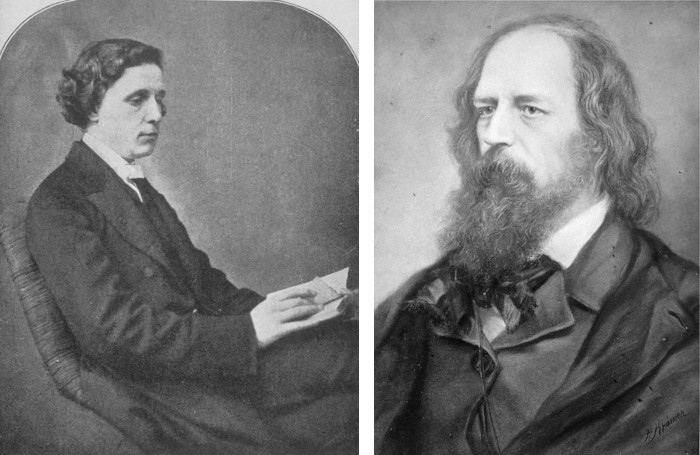
Lewis Carroll and Alfred, Lord Tennyson, became improbable acquaintances in the 1850s, a few years before Carroll published Alice’s Adventures in Wonderland. The young author sent a letter to his cousin, May 11, 1859, after one memorable visit to the laureate:
Tennyson told us that often on going to bed after being engaged on composition he had dreamed long passages of poetry (‘You, I suppose,’ turning to me, ‘dream photographs?’) which he liked very much at the time, but forgot entirely when he woke. One was an enormously long one on fairies, where the lines from being very long at first gradually got shorter and shorter, till it ended with fifty or sixty lines of two syllables each! The only bit he ever remembered enough to write down was one he dreamed at ten years old, which you may like to possess as a genuine unpublished fragment of the Laureate, though I think you will agree with me that it gives very little indication of his future poetic powers:—
May a cock-sparrow
Write to a barrow?
I hope you’ll excuse
My infantine muse.
(Lewis Carroll, “A Visit to Tennyson,” Strand, June 1901. See Pillow Verse and Night Work.)
